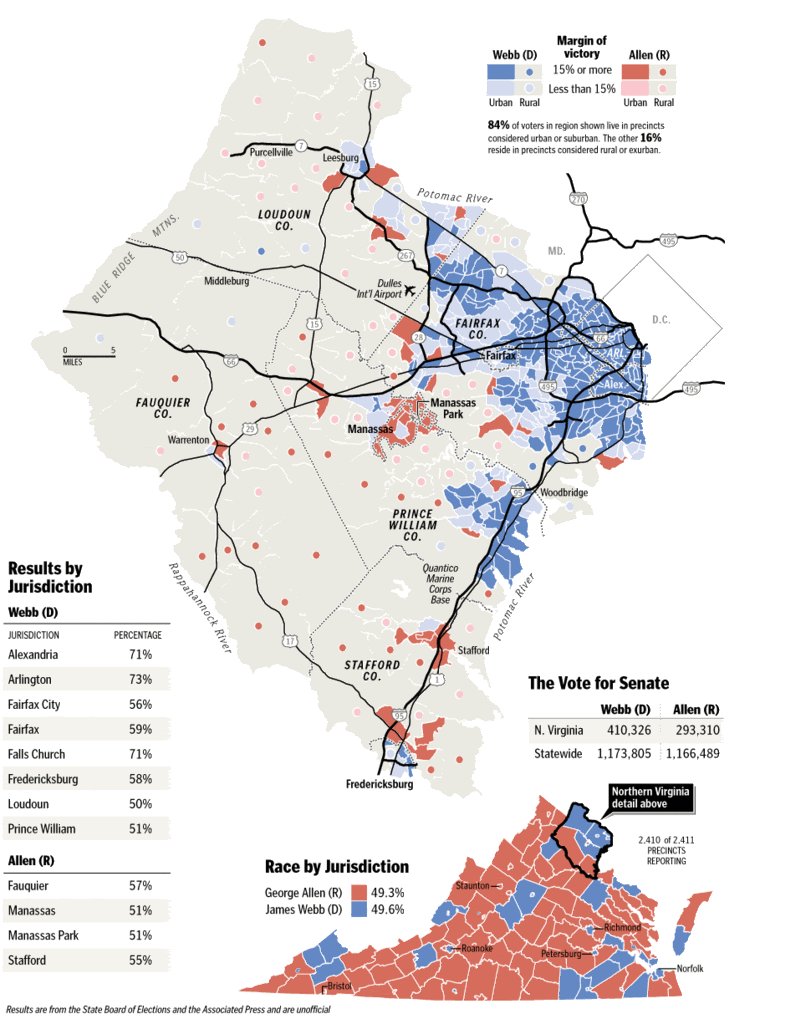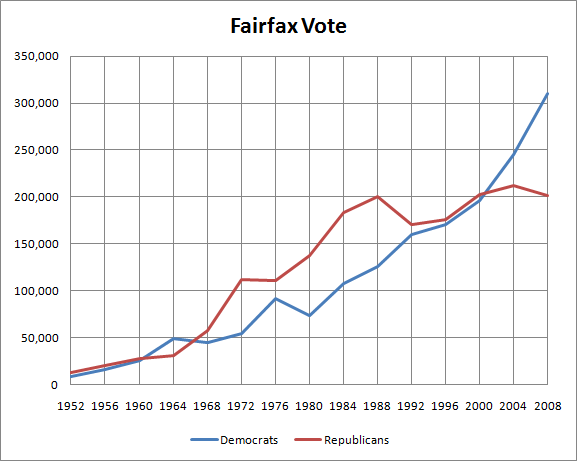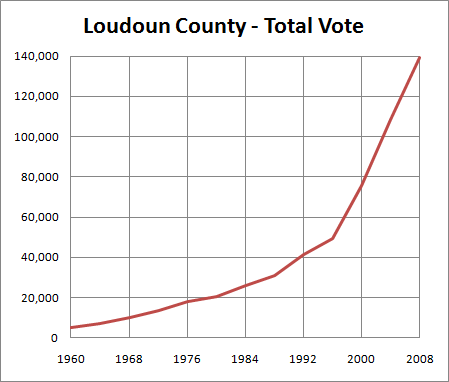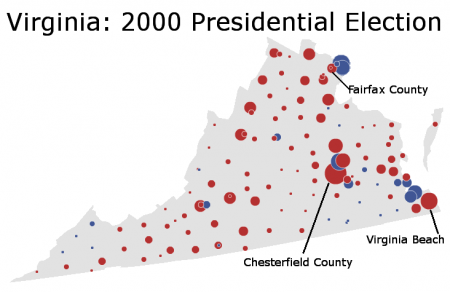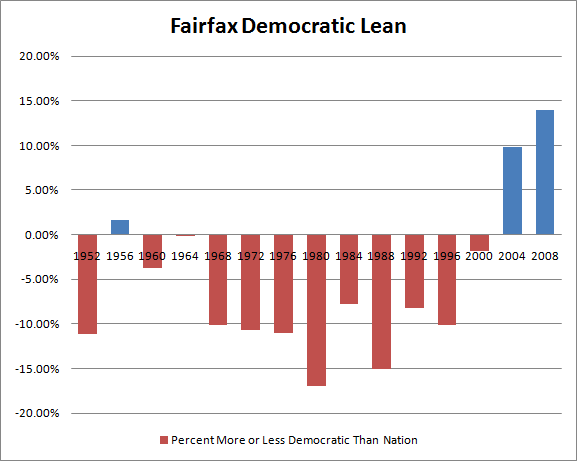This is the fourth part of a series of posts analyzing the swing state Virginia. It is the second section of two focusing on Northern Virginia, and focuses on analyzing the structural foundation behind NoVa’s Democratic shift. The fifth part can be found here.
Demographics
In many ways, Northern Virginia represents the best America has to offer. As wealthy, diverse, and rapidly growing suburb, it offers the very essence of the American Dream.
More below.
Demographically, Northern Virginia is one of those rare places whose racial composition is representative of America as a whole. In Fairfax County today blacks constitute 9.4% of the population, Hispanics 13.5% (nationally the numbers are 12.3% and 15.1%, respectively). Asians come in at 15.8%, a higher number than the national average.
As has been much noted, Northern Virginia is getting more diverse. In Fairfax County, for instance, the numbers of blacks, Hispanics, and Asians have all increased since the 2000 census – which counted blacks as 8.6%, Hispanics as 11.0%, and Asians as 13.0% of the population.
These changes are especially striking in exurban NoVa. Loudoun County, 2000 was 5.9% Asian and 5.3% Hispanic. Since then those numbers have more than doubled; from 2006-2008, the census estimated Loudoun as 12.3% Asian and 10.1% Hispanic (blacks constituted 7.8% of the county’s population).
Finally, Northern Virginia is very, very, very rich. The median household income in both Fairfax and Loudoun exceeds $100,000; a 2008 census study estimated them as the two wealthiest counties in America (see page 13). More than one-third of individuals over 25 in Arlington County hold graduate degrees, compared with less than 10% of Americans at large. Life expectancy is the highest in the nation.
The Future
Although Northern Virginia continues become more diverse, it is unclear how much more Democratic it can get. Suburbs rarely give a party more than 60% of the vote, and 65% seems to be the upper limit for Democrats. Given that President Barack Obama won 60.12% in Fairfax County, Democrats appear to be near this line.
On the other hand, the suburban metropolis that does break this rule (the Bay Area) has a lot in common with Northern Virginia. Like NoVa, the Bay Area is rich, diverse, and growing. But the Bay is also composed of a majority of minorities; this will not happen anytime soon in Northern Virginia.
Moreover, Virginia is missing the one piece that would truly make it a Democratic stronghold. Democratic suburbs like NoVa often surround poor, astonishingly Democratic cities. The good news is that NoVa does surround such a city – and that city gave Democrats 92.46% of its vote in 2008. The bad news is that the city’s name is Washington D.C.
All this may not matter, however, if Northern Virginia continues its rapid growth. Today the exurbs in Loudoun and Prince Williams are the main sites of development, while Fairfax County’s growth appears to have slowed down. This translates into many more voters:
As Loudoun and Prince Williams become more diverse, moreover, they are been voting ever more Democratic. In 2000 Loudoun voted Republican by a 8.25% margin; in 2008 it voted Democratic by a 15.22% margin.
If Northern Virginia continues growing at this rate – and voting Democratic by a 3-2 margin – Virginia may eventually change into a Democratic-leaning state. This will probably be balanced out as other Democratic states naturally turn Republican-leaning. Nevertheless, adding NoVa to the old Democratic base leaves the Democratic Party in strong shape. That traditional base will be the subject of the next post.
